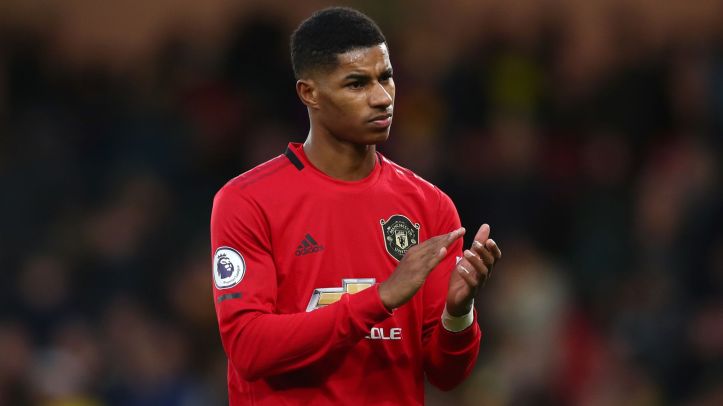
Despite the return of the English Premier League this week, it took a non-footballing agenda for Marcus Rashford to steal the headlines this week.
The Manchester United recorded an incredible triumph over the UK government, forcing Prime Minister Boris Johnson into a U-turn on his school meals policy.
Throughout the coronavirus lockdown, the government had provided vouchers to families whose children qualified for free meals.
However, this policy would not continue outside of term time; but after Rashford’s open letter to MPs, about 1.3 million children will now be able to claim free school meals.
The government will now pay the additional £120 million to extend free school meal vouchers across the six week holiday period.
It’s a massive win, not just for the 22-year-old England star, but also in the fight against poverty in the nation – particularly at such a tough time.
However, at a time when the battle against racism is at its peak, we can’t help but feel as though there’s an ever bigger fight still at large.
First, let me reiterate that what Rashford’s campaigning has achieved is excellent.
The footballer’s status and mass social media following proved pivotal to securing the victory, and it goes to show just how much influence these sports stars can have.
If only football’s campaign against racism could turn heads just as quickly.
Racism has been an unfortunate staple of the game for many, many years.
The Kick It Out organisation has been working to openly challenge discrimination, to encourage inclusive practics, and strive for positive change since 1993.
And in February earlier this year, the organisation claimed that racism in the sport was ‘worse now than five years ago.’
Further regression could be caused by complacency from fans and governing bodies, although it seems that most are now finally united in an anti-racism stance.
Though there just hasn’t been enough success on the subject, despite the regular campaigns and continued calls for change.
Maybe it’s not quite as simple as winning free school meals for children – maybe it should?
The government played a much bigger role in response to Rashford’s plea as opposed to tackling racism (in football or otherwise), but crucially, they listened.
They listened to what Rashford had to say, when many voices could not in fact be heard.
Who though, has been listening, and reacting, to the pleas across football for the last couple of years?
Raheem Sterling has been fairly vocal of late, but he’s been far from the first to voice his concerns.
Former England defenders Sol Campbell and Rio Ferdinand have been among those most vocal about racism in the game over the years.
In light of the death of George Floyd and the ‘Black Lives Matter’ movement, which has crept its way into the Premier League restart, what will it now take to stamp out racism in the game for good?
Following the 100-day absence, Premier League players took a knee at kick-off on Wednesday night to show support for the BLM movement.
All the players from teams Aston Villa and Sheffield United, the first match after the restart, also had the words ‘Black Lives Matter’ replacing their names on their shirts.
You can only hope for fewer cases now that the country is seemingly more aware, and more united, on the issue.
Because stamping out racism, in football and (chiefly) in society, is now the nation’s most pressing concern.
If only that particular win could be achieved with a letter to MPs.